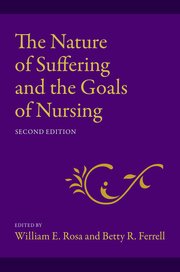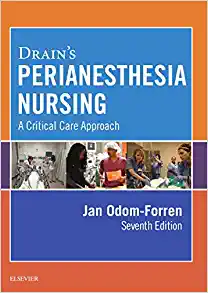 A new eBook has been added to the Library, The Nature of Suffering and the Goals of Nursing. This text contains qualitative experience of those who suffer alongside the best available evidence for person-centered palliative nursing. This 2nd edition now contains revised tenets to support nurse well-being in professional practice in light of the COVID-19 pandemic, and new content on social determinants of health and increased visibility of marginalized populations across biopsychosocial domains to support whole-person care.
A new eBook has been added to the Library, The Nature of Suffering and the Goals of Nursing. This text contains qualitative experience of those who suffer alongside the best available evidence for person-centered palliative nursing. This 2nd edition now contains revised tenets to support nurse well-being in professional practice in light of the COVID-19 pandemic, and new content on social determinants of health and increased visibility of marginalized populations across biopsychosocial domains to support whole-person care.
MSKCC contributors to the 2nd edition of The Nature of Suffering and the Goals of Nursing include Nessa Coyle, Dr. Elena Abascal, Dr. William E. Rosa, and Renee Wisniewski

 The 7th edition of
The 7th edition of